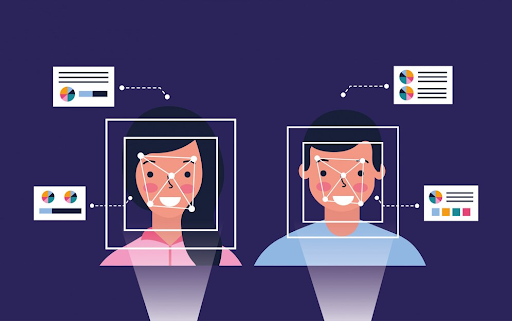Mohammed Alothman: The Use of AI Avatars in Influencer Marketing
- talent Kompass
- Feb 19, 2025
- 4 min read
I, Mohammed Alothman, tech expert and entrepreneur, am always inspired by how the industries are changing at a rate that is unknown in history.
Among the most exciting developments in AI is the advent of AI avatars for influencer marketing.

Today's brands are now deploying artificial AI avatar technologies to interact effectively and engagingly with their audiences in new and exciting ways. These digital influencers, powered by AI, are reshaping content creation, engagement strategies, and brand loyalty.
Through my experience at AI Tech Solutions, I've been an awestruck witness to how artificial intelligence is transforming influencer marketing by providing large-scale, affordable and creative branding solutions.
The Rise of AI Avatars in Influencer Marketing
AI-driven influencers have risen in widespread numbers since companies are now seeking innovative and efficient ways to stay connected with their audience.
In traditional influencers, there are not only the costs that can be high, but also the difficulty to maintain consistent messaging and the human factor. AI avatars, on the other hand, provide a constant, internally consistent, branded, and 24/7 experience of interaction.
Why Brands Are Adopting AI Avatars
Cost Efficiency: Human influencers can command high fees, while AI avatars offer a one-time cost of development, with scalability options after.
Brand Consistency: AI avatars are very stable with their messages and "personality" when representing a brand.
Global Reach: AI influencers can be multilingual and target multiple ethnicities.
Scalability: AI avatars can be used on a variety of platforms at the same time, guaranteeing brands are on display on the same platforms all the time.
Personalization: AI avatars can be employed in hyper-personalizing interactions, tailored by the audience’s preferences, in real-time.

AI Tech Solutions and AI Avatars
At AI Tech Solutions, we have been following the development of how computer-assisted, machine-learning-based AI avatars using machine-learning algorithms, natural language processing (NLP) and computer vision to create hyperreal digital influencers.
We want to dig deeper into how AI-based models are able to assess audience behaviors and adjust the content at the same time.
Real-World Examples of AI Avatars in Influencer Marketing
Many global brands have already embraced AI avatars. Some notable examples include:
Lil Miquela: A virtual influencer with millions of followers, collaborating with brands like Prada and Samsung.
Shudu Gram: I.e., the first digital supermodel, collaborating with luxury fashion companies.
Lu do Magalu: A Brazilian AI influencer used for e-commerce brand promotions.
AI Avatars vs. Human Influencers
Feature | AI Avatars | Human Influencers |
Cost Efficiency | High | Medium-High |
Brand Consistency | Excellent | Variable |
Engagement | 24/7 | Limited |
Emotional Connection | Improving | Strong |
Scalability | High | Moderate |
Customization | High | Limited |
Ethical Considerations in AI-Generated Influencers
Authenticity: Consumers are very strongly able to identify themselves with the reality of human-on-human interaction – and AI-generated content may look dead and unresponsive.
Transparency: Brands must disclose the use of AI influencers in an effort to retain consumer trust.
Data Privacy: AI avatars gather information for personalization, which may have privacy implications.
The Future of AI Avatars in Influencer Marketing
An AI avatar's usage in influencer marketing is worth attention. As content creation powered by AI increases, brands will increasingly leverage digital influencers to reach consumers.
AI tech solutions developed today keep on evolving their AI models in order to make their AI avatars as realistic, effective and ethical as possible for better brand storytelling.

Conclusion
As the influencer marketing ecosystem is disrupted at every stage by AI-led advances, AI avatars are an important asset for marketers.
Through their ability to provide consistency, scalability, and hyper-personalization of engagement, they are a powerful marketing instrument. Deeply involved in the development of artificial intelligence, I, Mohammed Alothman, see the emerging importance of AI avatars in digital marketing strategies worldwide.
About the Author: Mohammed Alothman
Mohammed Alothman is an AI expert, thought leader, and digital transformation advisor with a deep passion for AI-driven marketing solutions. Mohammed Alothman is the founder and the CEO of the company AI Tech Solutions and is well qualified in applying artificial intelligence to revolutionize any industry.
As a seasoned expert in machine learning, natural language processing, and AI-enabled automation, Mohammed Alothman is actively looking into the new and emerging AI applications that can help improve the business efficiency and communication/engagement strategies.
Frequently Asked Questions (FAQs) About AI Avatars
1. Are AI avatars replacing human influencers?
Not entirely. AI avatars enhance human influence by virtue of their reproducibility, scalability, but human feeling and genuine act are still of value.
2. What is their interaction with the audience?
They are interactive with the audience through AI-driven chatbots, NLP and facial recognition technology.
3. Which industries enjoy the benefit of AI avatars?
AI avatars are applied in the areas of fashion, e-commerce, gaming, educational and entertainment worlds.
4. Are AI avatars cost-effective for small businesses?
Yes. There are many platforms through which customizing AI avatar solutions for business comes to them at various price points.


















Comments